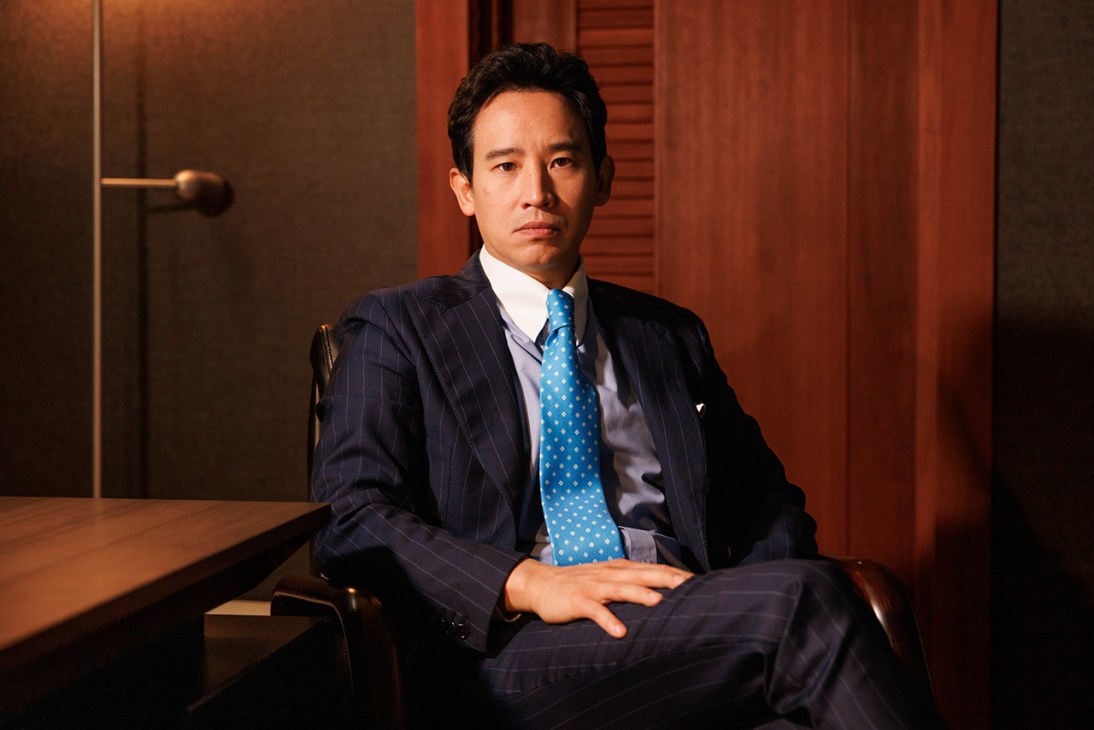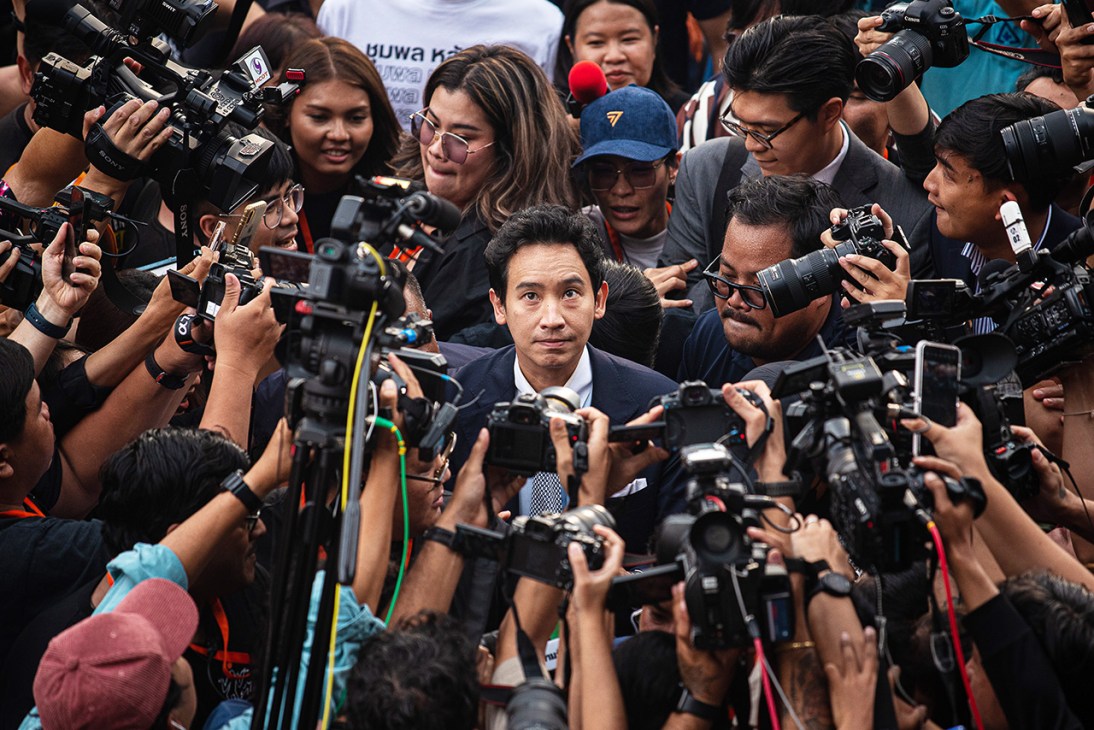‘Thai politics is deadlocked by design’: Pita Limjaroenrat on Thailand’s leadership crisis
As thousands call for Paetongtarn Shinawatra to step down, Thailand’s ‘almost prime minister’ tells us what should be done differently in a nation where the military has ensured its enduring influence over governmental appointments.
Thailand has once again found itself in a political crisis. The Constitutional Court has suspended prime minister Paetongtarn Shinawatra pending an investigation into her conduct and protestors are taking to the streets to demand her resignation. Meanwhile, Shinawatra’s Pheu Thai party is under pressure from the opposition to call fresh elections or face a vote of no confidence. As tensions in Bangkok rise, talk of military intervention is back in the news, raising the prospect of another Shinawatra-led government ending in a coup d’état.
Amid the mayhem, Pita Limjaroenrat is stepping back into the spotlight to publish his political memoir, The Almost Prime Minister. Limjaroenrat was the former leader of Thailand’s now defunct Move Forward party and was on course to become the kingdom’s prime minister after the most recent election in 2023. However, he too was suspended by the Constitutional Court and was later banned from politics for 10 years. Pheu Thai finished second to Move Forward and went from supporting Limjaroenrat for prime minister to leading its own coalition government, which is now teetering on a knife’s edge.
Monocle sat down with Limjaroenrat in Bangkok to discuss the political merry-go-round, neighbourly chats with the former prime minister of New Zealand, Jacinda Ardern and the chances of the People’s Party (the successor to Move Forward) winning the next election.

What have you been doing since you almost became prime minister?
I went to Boston to become a senior fellow at Harvard University. My ban [from Thai politics] is for 10 years and I have nine more years to burn, so I’m travelling the world and trying to help the next generation of leaders.
It sounds like you would still like to be prime minister one day.
I’m waiting for my time. I want to bring about the reforms that I promised two years ago for the people who voted for me. But if Thailand changes in the next nine years, I won’t need to return.
Are you feeling slightly glad that you’re not prime minister right now?
No, not really. I had lots of things that I wanted to achieve and I’m really disappointed that I couldn’t fulfill any of them. Thailand needed a strong government to deliver and we had the mandate for it. Unfortunately, Pheu Thai didn’t come through.
What do you make of the Thai government’s current crisis?
Thais want the prime minister [Paetongtarn Shinawatra] to resign because she has neither the common sense nor the efficiency to take on the challenges that the country is facing. That’s the zoom-in part. But the zoom-out part is that Thai politics is deadlocked by design. It was organised by the military junta to ensure that the constitution includes mechanisms for changing the election outcome. That happened to me and it’s what’s hitting her as well. The judiciary is clearly outperforming the other branches of government.
Could there be another military coup in Thailand?
That is a possibility because of the normalisation of coups. Something that’s abnormal has become quite normal in Thailand. It’s really up to us Thai to make sure that we don’t allow that to happen.
What prompted you to write a book about your experiences?
When I moved to Boston, my neighbour was Jacinda Ardern. She was writing her political memoir and she inspired me to do the same. Another person [who influenced me] was Sanna Marin, the former prime minister of Finland. We met in South Korea and she was also writing her memoir.
Did you genuinely believe that you had a shot at becoming prime minister?
I’m a finance guy, so I had my scenario analysis. I thought that there was a 15 per cent chance that I wouldn’t become prime minister. We had to plan for this outcome and we tried every single resource to make sure that it didn’t happen. Obviously it did happen – but I wasn’t naive. I didn’t assume that we’d get the chance to govern just because we got the most votes.

When did you realise that it was all over for you?
There was a brown envelope on my desk in the parliament informing me that [the Constitutional Court] was suspending me and that it was going to take its time. They suspended me for six months. Thailand needed a leader, so that’s why Srettha Thavisin stepped up and became the prime minister, even though he didn’t win the votes.
Could you or your party have done anything differently to change the outcome?
I would have done the same but with more detailed explanations. Before the election, I would have met with our supposed opponents – whether that’s the military, the monopolies or the media – looked them in the eye, answered their questions and explained to them what we wanted to achieve. That’s what we need to do now: open a dialogue.
Can a clean political party win power?
Absolutely. I feel like we have found the secret sauce. I teach about it at Harvard – I call it “precision politics”. To precisely employ your resources without using a lot of money, you need to use the “four Cs” framework. Is our candidate strong? Is the competitor weak? Is the constituency relatively young? And has our vote count gradually increased in the past four years? We prioritised 160 districts in Thailand based on precision politics and won 151 of them.
Do you worry about your supporters losing faith?
Voter fatigue is something that we are worried about and you never know what’s going to happen in Thai politics. Our poll numbers are very good but the ruling elite is cooking something up – I can smell it from the Sukhumvit area. They want to make sure that the choice of the majority does not translate into a government. The election is the last contest that we have a chance of winning. If the voting turnout is below 70 per cent, I can guarantee that we’re not going to win. If the voting turnout is more than that, we have a chance to win – and win big.
What leadership advice would you give to your successor, Natthaphong Ruengpanyawut?
Take your time. It’s a crystallisation process that takes time, pressure and heat. Take the pressure, take the heat and take your time and then you’ll be able to shine like a diamond. When I started, my poll numbers were at three per cent and I ended up with 46 per cent. He’s already at 31 per cent and will emerge as an appropriate leader for Thailand.


